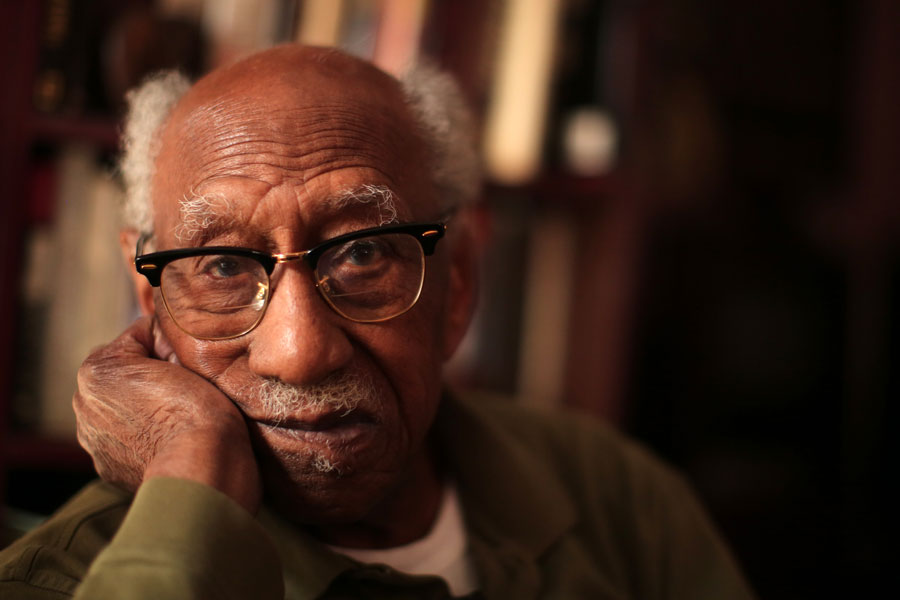Longtime Chicago historian and civil rights activist Timuel Black has witnessed a great deal in his 101 years. The grandson of slaves, he participated in several historic marches with Martin Luther King Jr., was a confidant to the late mayor Harold Washington, and is an oft-sought oracle on matters of race and social inequality. As protests and riots continue to erupt in Chicago and across the country following the death of George Floyd in Minneapolis, Black shared his thoughts.
Did you view the footage of George Floyd being killed by police?
Yes, I did. It carried me back historically to similar conditions that have existed in the conflict between the law enforcement in big cities and particularly African Americans. And I always ask myself the question, “If he had been a white boy, would this have happened to him?” And the answer, from my experience, is no. The answer, for me, is always no.
As you watch the protests and riots unfold, what emotions are you feeling?
Frustration and confusion. During the ’60s protests, we knew we were participating in the struggle for equality of opportunity and following Dr. King’s leadership. It was clear what the demonstrations were about — in Atlanta, in Selma, in Chicago. When we were marching in Marquette Park, we knew why we were marching. This one is different. Today, with the virus and all, it’s not as clear what the demonstrators are on the streets for. We know that there is clarity in terms of wanting equality of healthcare and certainly police care, but it’s not clear as to who is participating for what. Because of economic insecurity, there are many people who take advantage of these demonstrations to find food and clothing for themselves and their children.
King talked about riots being the language of the unheard. What would he have thought watching all of this unfold?
He would’ve been as confused as I am. The [reasons for] marches and demonstrations of his period were very clear among young people, across racial and ethnic lines.
Do you wish you could be out there in the streets protesting?
I can support young people going out, and I encourage them to go out, but I couldn’t do it anymore. If I were younger, I would. Absolutely.
Does it anger you to see some people destroying their own city in the midst of these protests?
It doesn’t anger me, but it confuses me, and I would like to see that corrected. I would like to see more leadership of the demonstrators. Obvious leadership is missing. Leadership that was provided by people like Dr. King in the ’60s is not as clear today as it was then. With Dr. King, we knew who we were following and we respected him. With Dr. King, nonviolent protesting was almost a demand. If one did not feel that they could be nonviolent, then they would not participate, even though they sympathized with the cause. And those of us who participated in marches in the South and the North had to make that adjustment in Chicago.
Throughout your lifetime, racial strife has ebbed and flowed to varying degrees, but it never ends. Is there a solution?
Well, the history that those of us in my generation were taught by our fathers and mothers is not as available today. Across races, the family is not as strong as it once was. If people don’t know what human beings can do to one another, then another person’s or another group’s life is not important to them.
How do you see the current strife ending?
Let me put it this way: I’m glad I’m not a teenager, because they don’t feel as optimistic about the future as people of the earlier generations did. Today and tomorrow are the only days that they feel are available. In today’s world, with all the new [means of] communication, they can see as they feel. They can see the world more easily in their own terms than their grandparents and great-grandparents and maybe even their parents, who saw the world in a spiritualistic way. And that’s the difference. [Young people] can see so much more reality in terms of the negative part of life. If my ancestors hadn’t had that optimism about the future, given the conditions that they were in, I wouldn’t be here.



